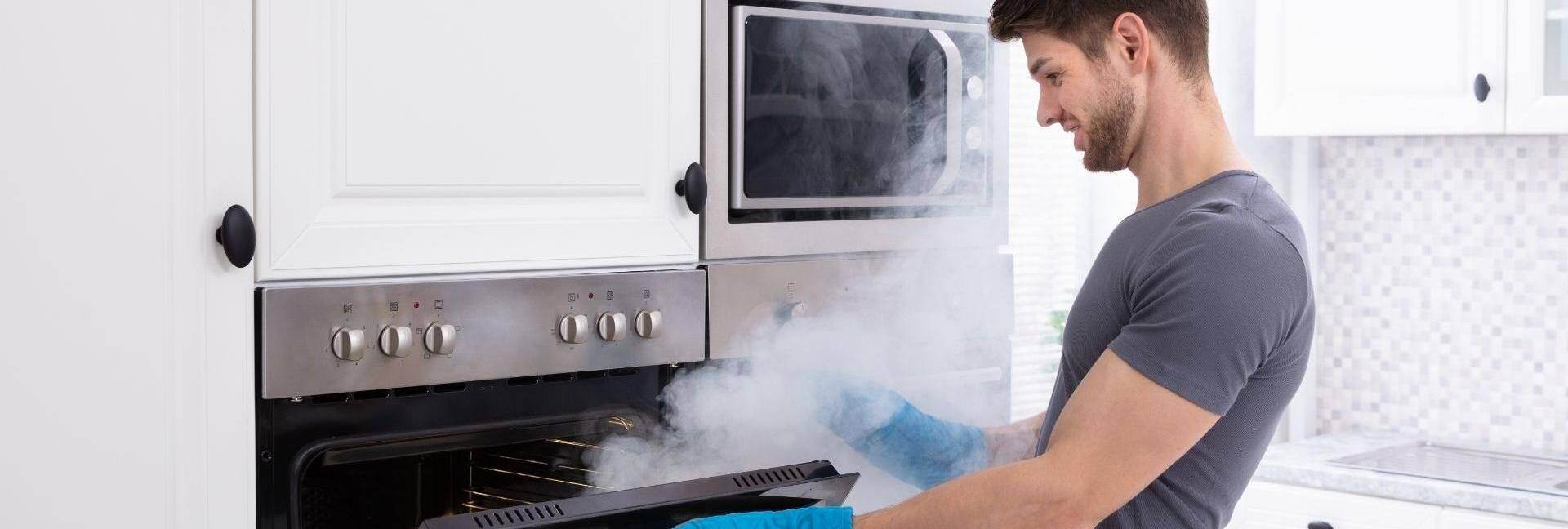Smart homeownership with Cinch Home Services
Tips and tricks for your house, your home and you. Your one-stop resource for maintaining and improving your home. From DIY tutorials and cleaning hacks to finding trusted professionals for major renovations, we've got you covered.


Ooops!
We encountered an issue retrieving plan details for your area. Please return to the previous page and try again.
All the tips you need classified by categories

Appliances, Home Repairs and Maintenance
Guide to common oven repairs
Oven won’t turn on? Learn how to troubleshoot the most common oven and stove problems with our handy guide.
Nov 18, 2025

Appliances, Home Repairs and Maintenance
Why does my oven smoke? Causes & solutions
If the meatloaf isn’t burning, then why is my oven smoking? Here are the top reasons for a smoking oven and ways to prevent your dinner from going up in smoke.
Nov 18, 2025

Appliances, Home Repairs and Maintenance
Complete the furnace maintenance checklist before temperatures drop
Winter is coming, so don’t delay completing this furnace maintenance checklist before you crank up the heat.
Nov 18, 2025

Appliances, Home Warranty, Appliance Issues
Home warranty vs. Appliance warranty: know the difference and choose the right one
If you're deciding between warranties, read on to learn the difference between purchasing broader home warranty coverage and more narrow appliance coverage.
Oct 6, 2025

Appliances, Home Repairs and Maintenance
How to clean, maintain and properly use your HVAC system
A well-functioning HVAC system is essential to your comfort at home. Regular HVAC maintenance and cleaning will keep it running smoothly.
Jun 3, 2025

Appliances, Home Repairs and Maintenance
Why is my Samsung freezer not freezing?
Is your Samsung freezer not working while the fridge is? This article will explain how you can diagnose issues with your Samsung freezer and how to address them.
Jun 3, 2025

Appliances, Home Warranty
Does a Home Warranty Cover Appliances (Old & New)?
Most home warranties are designed to cover major appliances, but there are differences based on the plan of choice. We break down the details in this article.
Jun 3, 2025

Appliances, Home Repairs and Maintenance
How to maintain an evaporative cooler
An evaporative cooler provides an energy-efficient, eco-friendly way to cool you home. Here’s how to keep it in good working order.
Jun 3, 2025

Appliances
Types of refrigerators: advantages & disadvantages
Looking to buy a new fridge? This article breaks down the different types of refrigerators so you can pick the one that’s right for you.
Jun 3, 2025

Appliances, Home Repairs and Maintenance
Dryer Timer Not Working? 7 Steps to Fix It | Cinch Home Services
If your dryer timer stopped working, it could be down to a few related issues. Learn how to diagnose and fix it.
Mar 3, 2025
Displaying 1 - 10 of 82 results
Ready for a home warranty?
It feels good to be prepared. Find the plan that's right for your home and budget